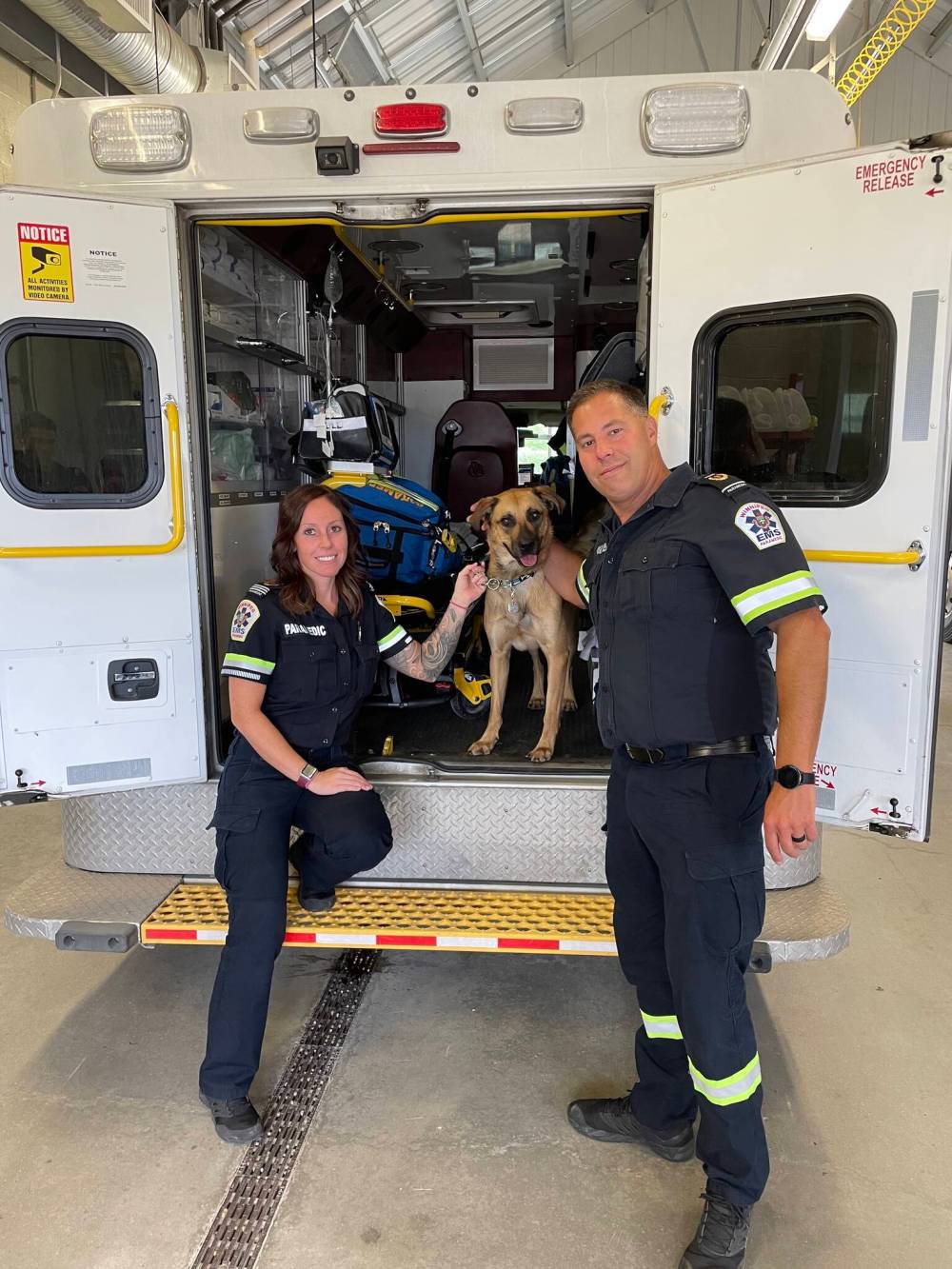Rescues, shelters slammed as ill-prepared ‘pandemic pet’ owners wave white flag
Advertisement
Read this article for free:
or
Already have an account? Log in here »
To continue reading, please subscribe:
Monthly Digital Subscription
$1 per week for 24 weeks*
- Enjoy unlimited reading on winnipegfreepress.com
- Read the E-Edition, our digital replica newspaper
- Access News Break, our award-winning app
- Play interactive puzzles
*Billed as $4 plus GST every four weeks. Offer only available to new and qualified returning subscribers. Cancel any time.
Read unlimited articles for free today:
or
Already have an account? Log in here »
Hey there, time traveller!
This article was published 01/12/2022 (791 days ago), so information in it may no longer be current.
WINNIPEG animal shelters and rescues are having a ruff go, as some pet owners rethink whether they want to care for their pandemic purchases and adoptions.
“There’s been a number of people who adopted animals throughout the pandemic, you know, and are now going back to work full time and not feeling like they’re able to care for them,” said Winnipeg Humane Society spokesperson Lenore Hume.
“It’s pretty serious.”

Paramedic Melissa Lawson with partner Steve Haines and pup MJ at Station 27.
There are more than 300 animals on a wait list to get into the shelter, Hume added.
Some of the people who want to surrender animals may be feeling the effects of recent cost of living increases, she said.
WHS is just one of the facilities in the city dealing with an overflow of animals.
“We’re definitely seeing a crunch because of dogs being returned,” said Lindsay Gillanders, a volunteer at Manitoba Underdogs Rescue.
Gillanders said some people who purchased pups during the pandemic are finding their full-grown dogs too much to handle now.
“Puppies (that) aren’t trained properly, they become big dogs that haven’t been trained properly,” she said.
The rescue is struggling to care for about 80 dogs currently in the facility, and it, too, has a wait list that includes strays from remote communities.
“We just can’t keep up,” she said. “It’s frustrating when there are new dogs that need our help, and we’re being asked to help with homed animals where people just haven’t made the proper commitment to training, like they should have initially.”
Many dogs being returned are between eight and 14 months old, she said. Some also have behaviour issues — they’re sometimes aggressive, aren’t leash-trained or get anxious when left alone.
“The pandemic wasn’t real life, right? So, dogs didn’t have to really learn how to live in homes with people leaving and, you know, being left alone during the day,” she said.
Manitoba Mutts Dog Rescue has been seeing a higher than normal return rate of adopted animals this year, mostly because the animals have behavioural issues, director Jenn Taplin said in an email.
Taplin said the pandemic made it difficult for pet owners to socialize their dogs, which the owner ideally should do when the pup is between eight weeks and four months old.
“If they don’t get enough socialization… they can grow up to be either fearful or aggressive,” Taplin said.
The city’s animal services agency and the Winnipeg Fire Paramedic Service teamed up in June in hopes of getting more dogs adopted and boosting morale inside fire halls.
Through the “station doggie dates” initiative, dogs from the city’s shelter are taken to the fire and paramedic stations to be looked after by crew members and, potentially, get adopted.
“We see a lot of bad things on a daily basis and, you know, just to come back and know you have someone there just wagging their tail, waiting for pats, it really increased that mental health,” said Melissa Lawson, advanced-care paramedic from Station 22 on Waverley Street.
There are 10 dogs currently being cared for at nine different stations and one at the 911 communications centre in Assiniboine Park, said Leland Gordon, general manager of animal services. Since the program started, about 43 dogs have been adopted, either by fire paramedic workers or community members.
“Some of them have fallen in love with the dog living at their own station and they ended up adopting it, which is great,” Gordon said.
He also noted that shelters and rescues across Canada are struggling with “pandemic pet” overflow.
“Lots of people got dogs during the pandemic and… (we were) all keeping our paws crossed that these people would keep the dogs after the pandemic wound down,” he said.
“But, unfortunately, there are a handful of people that really didn’t keep their dogs, right? And either they’re letting them go on the streets… or they’re trying to surrender them.”
Both Gordon and Gillanders stressed that people must make sure they are prepared for a lifelong commitment when deciding whether to own a pet.
“People need to realize that rescues are really hurting right now,” Gillanders said.
fpcity@freepress.mb.ca

